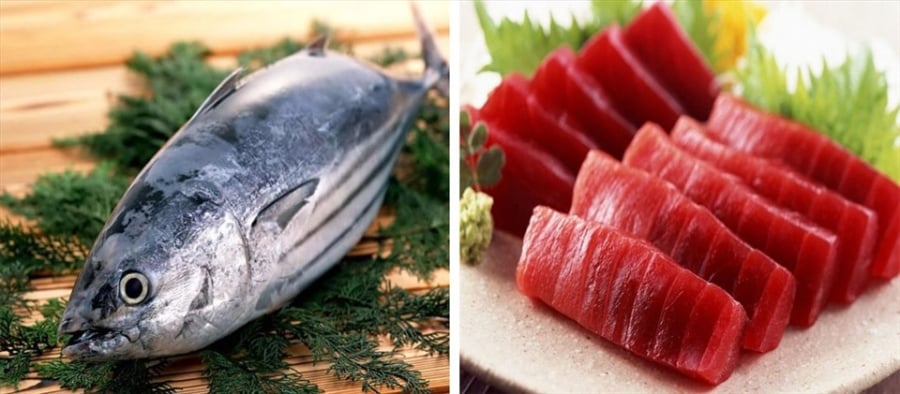Sardines
Sardines are small, slender fish that inhabit coastal regions. Despite their modest size, they pack a nutritional punch. They are an excellent source of protein, minerals, and vitamins A and D. Notably, sardines are rich in long-chain omega-3 fatty acids, offering a plethora of health benefits.
Tuna
Tuna is a deep-sea fish with tender, flavorful meat that remains untainted by environmental pollutants. Its flesh is a treasure trove of omega-3 fatty acids, renowned for their cardiovascular benefits. Tuna helps lower cholesterol and prevents atherosclerosis. It also plays a special role in preventing and treating cardiovascular and cerebrovascular diseases. Additionally, tuna is rich in iron, vitamin B12, and omega-3 fatty acids, which can improve anemia and prevent cardiovascular problems in the elderly.

Tuna for a Healthy Heart
Mackerel
According to experts, mackerel is a fast-growing, high-yield fish. On average, 100 grams of mackerel meat contains 166 kcal, 21.4 grams of protein, 7.4 grams of fat, and 486 mg of potassium. Regular consumption of mackerel by the elderly can help prevent cardiovascular diseases, memory loss, and type 2 diabetes.

Mackerel: A Nutritional Powerhouse
Anchovies
Anchovies are a rich source of omega-3 fatty acids, including EPA and DHA, which offer a host of health benefits. These essential fatty acids promote smooth blood flow, support heart health, and reduce the risk of cardiovascular disease. Anchovies are particularly beneficial for the elderly in maintaining heart health and preventing strokes. Additionally, anchovies contain high levels of vitamin D, which is essential for bone and joint health.
Discover the Top 12 Omega-3 Rich Foods
Contrary to popular belief, not all fats can be harmful to our health. In fact, some types of fat can be beneficial, assisting in the process of maintaining a healthy lifestyle. We often hesitate to consume fat due to fear of gaining weight, but it can be beneficial to learn more about the different types available.





































